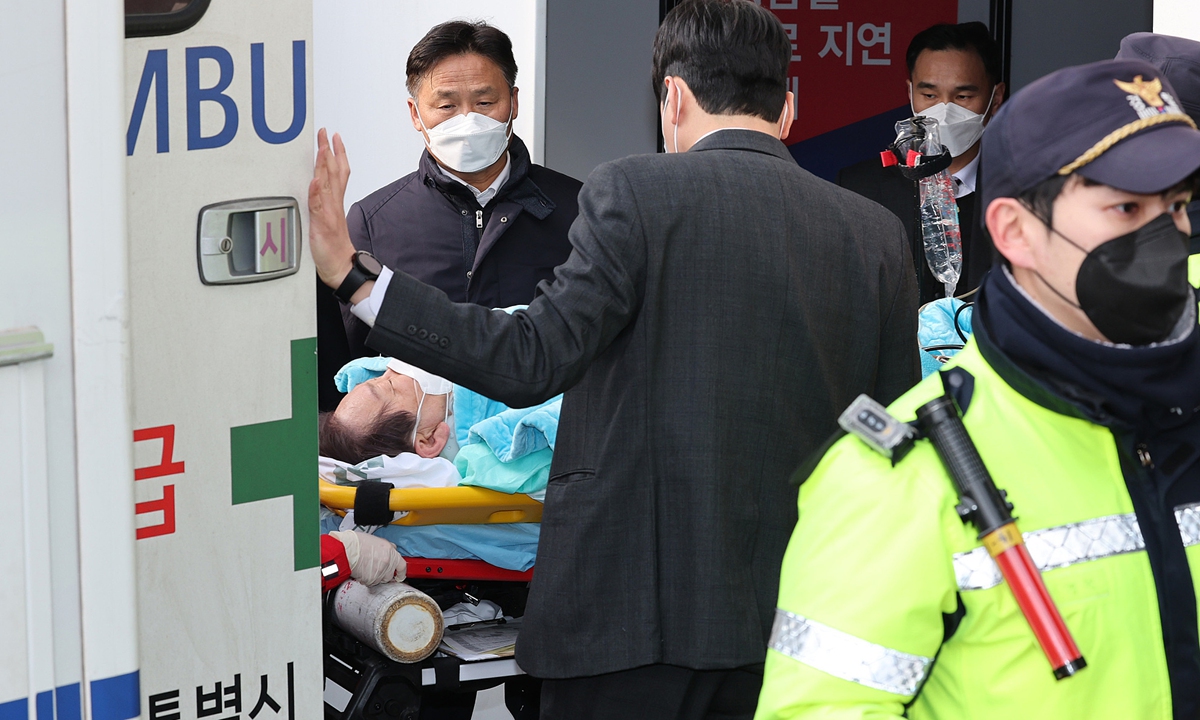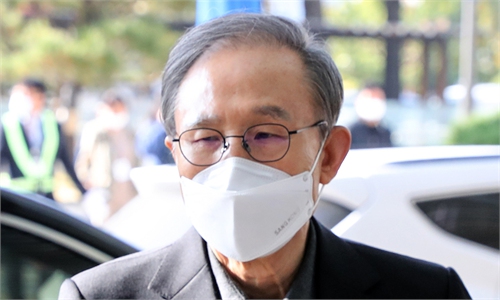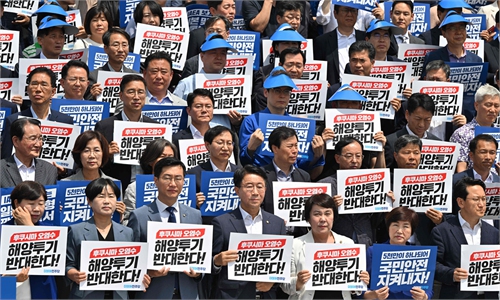Attack against S.Korea’s opposition leader shows ‘intensifying political polarization’

South Korea's opposition leader Lee Jae-myung is rushed to hospital after being stabbed in the neck during a visit to the southeastern port city of Busan on January 2, 2024. Photo: VCG
South Korea's opposition leader Lee Jae-myung was physically assaulted on Tuesday, the second day of 2024, with Chinese analysts saying that although more details are yet to be released, the case shows that political polarization within the country is further intensifying.
Due to the worsening economic situation that has severely undermined the livelihood of the Korean people, as well as the failed bid for the World Expo in Busan, President Yoon Suk-Yeol and his party will face challenges in the legislative election which is scheduled to be held in April.
Lee was stabbed in the neck during a visit to the southeastern port city of Busan on Tuesday and was airlifted to Seoul for surgery amid fears of additional bleeding, though the wound is not life-threatening, the Yonhap News Agency reported, citing officials.
Lee, chairman of the main opposition Democratic Party of Korea (DPK), was stabbed on the left side of his neck by a man in his 60s wearing a paper crown posing as an autograph-seeker at 10:27 am after Lee toured the construction site of a new airport on Busan's Gadeok Island.
The suspect was arrested at the scene and hauled away by police. Police identified the suspect as a man born in 1957 and surnamed Kim. He used an 18-centimeter-long knife purchased online for the attack, police said.
Busan Metropolitan Police Agency said it plans to charge Kim with attempted murder, as he has confessed to intending to kill Lee, Yonhap reported.
The motivation of the suspect remains unknown, but it is likely he was driven by political reasons, Chinese experts said.
"This incident may reflect the hatred against Lee among conservative forces. In the current South Korean political situation, the relations between the ruling and opposition parties, as well as the conflicts between different forces within each political party, are very intense and polarized. They are tough and aggressive against each other and show no room for compromise," Zhan Debin, director and professor of the Center for Korean Peninsula Studies at the Shanghai University of International Business and Economics, told the Global Times on Tuesday.
Analysts said that Lee, as a victim of this attack, is likely to win support and sympathy among South Korean people. It shows that Lee's rivals have no confidence or are unable to defeat Lee by appropriate and legal approaches, so they are trying to end Lee's political career by extreme attacks, experts said.
Han Xiandong, an expert on Korean Peninsula issues at the China University of Political Science and Law, told the Global Times on Tuesday that "the incident reflects that South Korea's democratic political system is still immature, as the people and political forces frequently express their opinions or achieve their goals by extreme measures, such as assassination."
South Korea is slated to hold legislative elections in April. All parties and politicians are going to be competing for the approval of the voters, while highlighting the mistakes and shifting the blame on their opponents. In short, the partisan conflict in South Korea, especially the one between the ruling People Power Party (PPP) and the opposition DPK, is only going to become more and more intense as the elections approach, said analysts.
The DPK condemned the attack on Lee, categorizing it as "an act of terror and a threat to democracy." South Korea's police chief announced the formation of a special investigation team in Busan to conduct a thorough and swift inquiry into the attack. Prosecutors also said they have formed a special investigation team to get to the bottom of the attack, according to Yonhap.
When the investigation result will have been released, it will definitely bring a huge impact to the upcoming legislative elections in April, Zhan noted. In the face of challenges such as the cost of living crisis, the failed World Expo bid and tensions with North Korea, whether the ruling party PPP wins the "mid-term exam" or the opposition DPK continues to hold the majority of seats in the National Assembly will determine the future of the Yoon administration, and even the policymaking of South Korea in terms of internal and external affairs, Zhan said.



